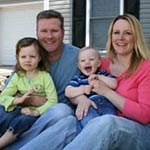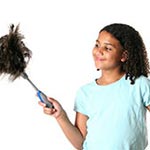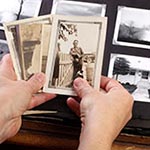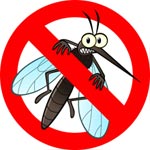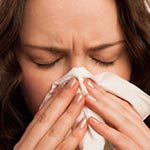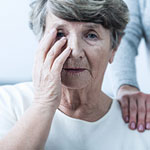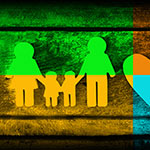Top Ten Household Safety Tips

"Just how safe is my home?" It’s a question many of us don’t think to ask until after an accident has already occurred. It’s all too easy to overlook safety routines we know we should be following. In addition, there may be safety measures you’re not taking simply because you don’t know you should be. These top ten home safety tips can help you make your home a safer place for you and your family.
#1 — Keep an updated first-aid kit
Every home should have an easily accessible first-aid kit. First aid kits should include all general first-aid accessories plus any items needed for family members with specific medical issues. Update the kit frequently. Replace used items and items that have gone past their expiration date.
#2 — Check smoke alarms weekly
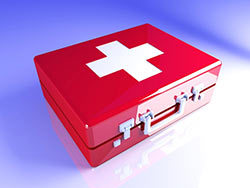
There those things on your ceiling that you tend to forget about unless they’re blasting out your eardrums. Smoke alarms save lives. They can also save your home from being destroyed by fire. Install them on all levels of your house. Keep them properly working by testing them weekly and changing out batteries when needed.
#3 — Get a fire extinguisher
Many home fires start as kitchen fires. Get a fire extinguisher to keep in your kitchen in case of a kitchen or other fire. Make sure everyone in the household knows how to use it in the event a small fire does occur. Remember PASS for Pull, Aim, Squeeze, and Sweep. Be sure it’s a multi-purpose fire extinguisher made to combat all three class of house fires. It should say ABC (for Class A, B, and C) on the fire extinguisher.
#4 — Store dangerous chemicals carefully
If you must have them in your home at all, then definitely take caution with how you store products with dangerous chemicals. Keep cleaners and other products away from food items. Store cleaners and medications out of reach of children and pets. Start replacing cleaners and products containing harmful poisonous chemicals in them with natural, chemical free ones.
#5 — Schedule regular maintenance
Home fires can also be caused by faulty appliances and equipment, or electrical issues. Make your home safer by scheduling regular maintenance check-ups for electrical units in your home. Have your air conditioning unit and hot water heater looked at. Keep your appliances clean and in working order. Check chords for frays and replace worn out items.
#6 — Practice good food safety habits
Improperly handling food can lead to illnesses and even death. Be safe by storing and handling your food properly. Keep foods stored at the proper temperatures. Always wash all produce carefully before eating. Check expiration dates and food storage instructions on all items. Handle meats and eggs with special care.
#7 — Become CPR certified
CPR can mean the difference between life and death for a family member. In cases of choking or heart attacks, help may arrive too late. Becoming CPR certified doesn’t take a lot of time or money. But it can be a priceless skill to have when a member of your household needs it. Even better, have two or more household members get certified in case the one needing the help is you!
#8 — Develop a fire escape plan
Does your family know what to do if a fire breaks out at home? If not, then it’s time to develop a fire escape plan. Make sure every member of your household knows about fire safety. Train each person in how to use a fire extinguisher. Talk about what to do it a fire ever occurs. Point out exits from every room. Go ahead and have a fire drill at least twice each year to practice for a real emergency.
#9 — Make a list of emergency numbers
Write up a list of emergency numbers including the local police and fire department numbers. You’ll also want to include numbers like the National Poison Control Hotline Number (1-800-222-1222). Hang the list somewhere easily accessible, like on the refrigerator. Keep another copy in your bedroom. It’s also an excellent idea to have all the members of your family program the numbers into their cell phones.
#10 — Install carbon monoxide alarms
Carbon monoxide (CO) is a colorless, odorless, and tasteless gas that can be deadly to humans. Carbon monoxide poisoning is a serious threat, often referred to as the "silent killer" because it’s virtually impossible to tell it’s there without CO detected devices. Get at least one carbon monoxide alarm for each floor of your home or apartment. If the CO detector in your home goes off, open your door and windows, turn off all appliances, and evacuate your entire family quickly.
You might also be interested in...
-
 10 Cheap Activities For Family Fun Night
10 Cheap Activities For Family Fun Night
-
 8 Habits that Could Be Hurting Your Marriage
8 Habits that Could Be Hurting Your Marriage
-
 The Benefits Of Coconut Milk
The Benefits Of Coconut Milk
-
 Top Tips For Bone Health For Women
Top Tips For Bone Health For Women
-
 Caring for Both Your Children and Your Parents
Caring for Both Your Children and Your Parents
-
 Debunking Common Relationship Myths
Debunking Common Relationship Myths
-
 Family Life Insurance for Young Families
Family Life Insurance for Young Families
-
 Five Expensive Home Improvement Projects that Won’t Boost Value
Five Expensive Home Improvement Projects that Won’t Boost Value
-
 Five Home Improvement Projects that Pay Off
Five Home Improvement Projects that Pay Off
-
 Health Benefits Of Cashews
Health Benefits Of Cashews
-
 Help Your Aging Parents Prepare for Retirement
Help Your Aging Parents Prepare for Retirement
-
 How to Get the Grandkids to Help with Chores
How to Get the Grandkids to Help with Chores
-
 How to Prepare a Family History for the Younger Generations
How to Prepare a Family History for the Younger Generations
-
 Is Herbal Medicine The Way To Go
Is Herbal Medicine The Way To Go
-
 Natural Mosquito Repellants
Natural Mosquito Repellants
-
 Planning Ahead: Family Life Insurance
Planning Ahead: Family Life Insurance
-
 How To Prevent The Common Cold And Flu Virus
How To Prevent The Common Cold And Flu Virus
-
 Taking Care Of The Caregiver
Taking Care Of The Caregiver
-
 Ten Best Fruits, Vegetables, and Herbs Families Can Grow at Home
Ten Best Fruits, Vegetables, and Herbs Families Can Grow at Home
-
 Ten Tips for Successful Single Parent Families
Ten Tips for Successful Single Parent Families
-
 Top 10 Health And Safety Tips For Fall And Winter
Top 10 Health And Safety Tips For Fall And Winter
-
 Top Ten Household Safety Tips
Top Ten Household Safety Tips
-
 Why All Women Need Life Insurance Too
Why All Women Need Life Insurance Too
-
 Why you should go on vacation
Why you should go on vacation
-
 Who Should Be Your Beneficiary
Who Should Be Your Beneficiary
-
 The Benefits Of Vitamin B
The Benefits Of Vitamin B
-
 5 Reasons To Eat Homemade Chicken Noodle Soup
5 Reasons To Eat Homemade Chicken Noodle Soup
-
 6 Healthy Breakfast Ideas
6 Healthy Breakfast Ideas
-
 5 Tips To Prepare For Allergy Season
5 Tips To Prepare For Allergy Season
-
 Unusual Ways To Keep Your Mind Sharp
Unusual Ways To Keep Your Mind Sharp
-
 Food That Isn’t As Healthy As You Think
Food That Isn’t As Healthy As You Think
-
 4 Things That Are Secretly Killing Your Healthy Lifestyle
4 Things That Are Secretly Killing Your Healthy Lifestyle
-
 Questions You Need To Ask At Your Next Checkup
Questions You Need To Ask At Your Next Checkup
-
 How To Make A Comeback After An Illness
How To Make A Comeback After An Illness
-
 4 Benefits Of Water Most People Don’t Know
4 Benefits Of Water Most People Don’t Know
-
 Heartfelt Advice To Avoid Heart Disease
Heartfelt Advice To Avoid Heart Disease
-
 What Is Respite Care And Are You One Of Millions Of People That May Need It?
What Is Respite Care And Are You One Of Millions Of People That May Need It?
-
 Three Tricks To Healthy Eating
Three Tricks To Healthy Eating
-
 How Important Is Estate Planning?
How Important Is Estate Planning?
-
 5 Backyard Grill Safety Tips
5 Backyard Grill Safety Tips
-
 Combining Insurance After Marriage: Updating Your Life and Health Policies
Combining Insurance After Marriage: Updating Your Life and Health Policies
-
 Top 5 Crazy Food Options at Globe Life Park, Home of the Texas Rangers
Top 5 Crazy Food Options at Globe Life Park, Home of the Texas Rangers
-
 4 Dangers of Owning an Exotic Pet
4 Dangers of Owning an Exotic Pet
-
 4 Ways Life Insurance Helps Families Plan for the Future
4 Ways Life Insurance Helps Families Plan for the Future
-
 Why Young Families Need Life Insurance
Why Young Families Need Life Insurance
-
 Reasons to Consider Travel Insurance
Reasons to Consider Travel Insurance
-
 3 Ways to Know It's Time to Increase Your Life Insurance Coverage
3 Ways to Know It's Time to Increase Your Life Insurance Coverage

 Insurance products are available in New York from
Insurance products are available in New York from  Insurance products are available in your state from
Insurance products are available in your state from 





